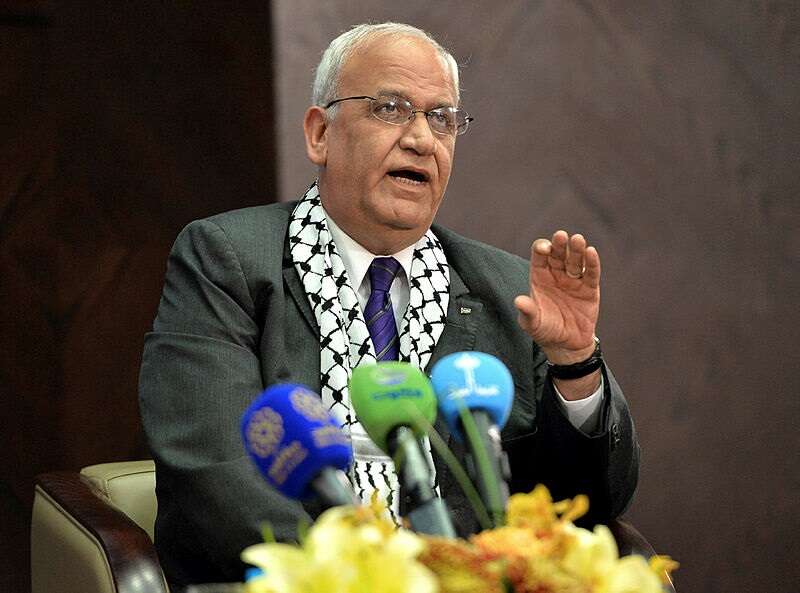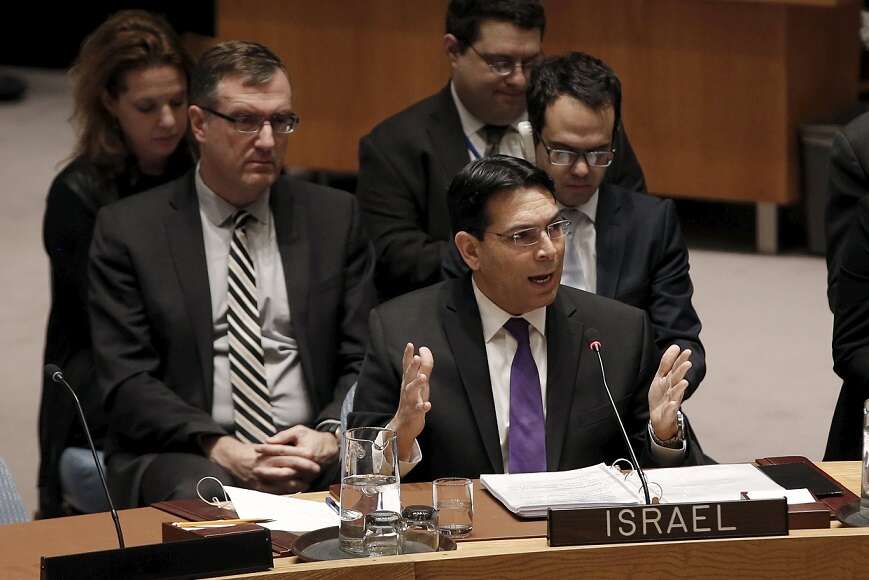Palestinian Authority President Mahmoud Abbas will reiterate his rejection of the Trump administration's Mideast plan in an address to the UN Security Council Tuesday, but members will not be voting on a draft resolution opposing the US proposal.
US President Donald Trump unveiled the peace initiative for ending the Israeli-Palestinian conflict on Jan. 28. It envisions a Palestinian state that turns over parts of Judea and Samaria to Israel.
Follow Israel Hayom on Facebook and Twitter
Members of Abbas' delegation to the UN told Israel Hayom that pulling the draft resolution stemmed from "a lack of international support for the Palestinians' claims." A senior official in the delegation said: "Even after submitting the softened version of the draft resolution, which excluded any form of explicit condemnation of the deal of the century, we struggled to secure the necessary majority for passing the resolution."
He continued: "Of the 14 member states [on the Security Council], we had five who supported the draft resolution that was submitted. We chose not to humiliate ourselves and pulled the draft."
With that, senior PA official Saeb Erekat denied reports that the draft resolution was pulled because of a lack of support, saying in a statement that the "rumor" the Palestinians withdrew the resolution is "not true and totally baseless."

He said the draft resolution, which initially said the US plan undermined the Palestinian peoples' aspirations for independence, is still being discussed and will be put to a vote once those discussions conclude with "a formula that represents our positions."
Beirut-based Al Mayadeen TV station on Monday quoted senior PA officials in Abbas' circle, who said that "heavy and significant pressure is being applied on Abbas by Security Council members to pull the draft resolution against the deal of the century."
According to Al Mayadeen, other Palestinian officials said the PA president was under "extraordinary pressure ahead of his address to the council. He is expected to give a very tough and critical speech and it's reasonable to assume his words will have diplomatic consequences."
The original draft resolution, co-sponsored by Tunisia and Indonesia and backed by the Palestinians, also said the US plan violates international law and Security Council demands for a two-state solution based on borders before the 1967 Six-Day War. It would have expressed the council's determination "to examine practical ways and means to secure the full implementation of its relevant resolutions, including enforcement measures under Chapter 7 of the (UN) Charter," which can be by military or non-military means.
The resolution had been expected to be put to a vote on Tuesday when Abbas addressed the council. But diplomats said many of its provisions were not acceptable to European and other members of the council.
After lengthy negotiations and revised drafts through the weekend, and the circulation of a drastically amended text by the United States, the Palestinians decided against putting any draft in "blue" – a final form for a vote, the diplomats said, speaking on condition of anonymity because the discussions were private.
Erekat said since the resolution hasn't been put in "blue," it cannot be said that it was pulled.
The proposed US draft strips a reaffirmation of previous UN resolutions and references to pre-1967 borders as well as a condemnation of "all measures aimed at altering the demographic composition, character and status of the Palestinian territory occupied since 1967, including east Jerusalem, in violation of international humanitarian law and relevant resolutions." A previous draft eliminated the reference to Chapter 7.
Satisfaction in the Israeli delegation
The Israeli delegation to the UN expressed satisfaction over the most recent development, with officials saying it was the result of heavy pressure applied by Israel and the US on members of the Security Council.
Israel's UN Ambassador Danny Danon called the original draft "an anti-US resolution" and said if it's modified in "a constructive way, maybe the council will support it."
He said Abbas should come to the Security Council on Tuesday "to present his vision for the future," instead of to reject the US plan.

"We look at it as a starting point for negotiations," he said of Trump's plan, adding that Abbas should come to Jerusalem to address the Israeli people and "deliver a message of hope, instead of a message of hate."
Danon added: "Our position was clear – no condemnations of Israel; and only negotiations will advance a peace process. I am grateful to the countries which helped block the unnecessary move initiated by Abbas."
After addressing the Security Council on Tuesday, Abbas will appear at a press conference with former Prime Minister Ehud Olmert, an opponent of the US plan who was forced to resign a decade ago ahead of a corruption indictment that later sent him to prison for 16 months.
Danon said he thinks "it's unfortunate ... and shameful that [Olmert] will be standing with president Abbas, especially this week when we saw attacks on Israeli civilians and soldiers" and a resolution "trying to condemn the US, our strongest ally. And I think from a former prime minister we should expect more."
Last week, senior White House adviser Jared Kushner, the architect of the US plan, called Olmert's expected appearance with Abbas "almost pathetic," accusing him of "trying to grab a headline when you're irrelevant."
He added: "It comes from a lot of jealousy that they couldn't get it done themselves."




